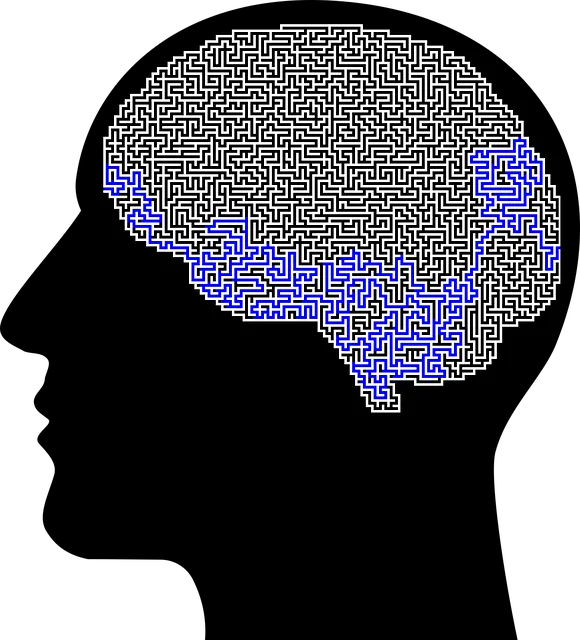Kaiser Permanente Norcal Lafayette leads the way in improving mental illness diagnosis accuracy through multifaceted strategies. They offer specialized services like a dedicated mental health phone number for early guidance, integrate mindfulness meditation into well-being practices, and provide advanced technology for data analysis. Their innovative approach includes training programs for healthcare providers, cultural competency education, and Trauma Support Services, ensuring precise diagnoses and inclusive care for diverse patients. By revolutionizing mental health care accessibility, they aim to enhance professional expertise and patient satisfaction in the Norcal Lafayette region and beyond.
Mental illness diagnosis accuracy is a critical aspect of patient care, with challenges arising from complexity, stigma, and accessibility. This article explores efforts to enhance diagnostic precision, focusing on strategies employed by healthcare giants like Kaiser Permanente. We delve into their approach, including the use of phone-based assessments in the Norcal Lafayette region, where remote evaluations have proven beneficial. Additionally, we examine innovative techniques for improving reliability and highlight success stories from these initiatives, especially concerning Kaiser Permanente’s mental health phone number services.
- Understanding the Challenges of Mental Illness Diagnosis
- Kaiser Permanente's Approach to Enhancing Diagnostic Accuracy
- The Role of Phone-Based Assessments in Norcal Lafayette Region
- Innovative Strategies for Improving Diagnostic Reliability
- Impact and Future Directions: A Look at Success Stories
Understanding the Challenges of Mental Illness Diagnosis

Diagnosing mental illness accurately is a complex task due to its multifaceted nature and often subtle symptoms. The process involves sifting through various factors—personal history, current experiences, genetic predisposition, and more—to pinpoint the specific condition affecting an individual. This complexity is further compounded by the fact that many mental health disorders share overlapping symptoms, making differentiation challenging. For instance, what seems like chronic stress could be a sign of burnout, anxiety, or even depression, requiring thorough assessment and professional expertise to arrive at a precise diagnosis.
Organizations like Kaiser Permanente Norcal Lafayette play a vital role in enhancing diagnosis accuracy by offering specialized mental health services. They provide resources such as phone support (e.g., Kaiser Permanente mental health phone number) that promote early intervention and guidance. Additionally, integrating practices like Mindfulness Meditation into daily routines can aid in Depression Prevention and Burnout Prevention, thereby reducing the likelihood of misdiagnosis by improving overall mental well-being and enabling clearer assessment.
Kaiser Permanente's Approach to Enhancing Diagnostic Accuracy

Kaiser Permanente, a healthcare organization renowned for its comprehensive approach to well-being, has made significant strides in enhancing the accuracy of mental health diagnoses, particularly through innovative initiatives in Norcal and Lafayette. Their strategy revolves around fostering a multi-faceted system that combines advanced technology with specialized training for healthcare providers. One key component is the Inner Strength Development program, designed to equip individuals with resilient coping mechanisms. This holistic approach not only improves diagnosis precision but also empowers patients to actively manage their mental health.
Additionally, Kaiser Permanente prioritizes Healthcare Provider Cultural Competency Training, recognizing that cultural sensitivity is pivotal in accurate diagnosis. By educating staff on diverse cultural perspectives and practices related to mental health, they ensure a more inclusive and effective care environment. This training, coupled with ongoing Stress Management workshops, underscores Kaiser Permanente’s commitment to addressing the complex interplay of cultural and psychological factors in mental health assessment.
The Role of Phone-Based Assessments in Norcal Lafayette Region

In the Norcal Lafayette region, phone-based assessments are transforming mental health care accessibility and accuracy. Kaiser Permanente, a leading healthcare provider, has implemented innovative strategies to improve diagnosis precision for conditions like anxiety and trauma-related disorders. By leveraging technology, they offer dedicated mental health phone numbers that connect individuals seamlessly with trained professionals. This approach is particularly beneficial for those seeking discretion or living in remote areas, ensuring timely access to expert advice.
These assessments not only streamline the initial evaluation process but also empower patients to discuss their experiences in a comfortable setting. Through structured conversations, healthcare providers can gather detailed insights, helping them make more informed diagnoses. Additionally, phone-based services encourage ongoing support, promoting self-care practices like mindfulness meditation for anxiety relief. The integration of Trauma Support Services within this framework further highlights the comprehensive care approach, addressing various mental health needs in a convenient and effective manner.
Innovative Strategies for Improving Diagnostic Reliability

In an effort to enhance mental health diagnosis accuracy, innovative strategies are being explored and implemented across healthcare systems, including Kaiser Permanente’s Norcal Lafayette location. One prominent approach involves leveraging advanced technologies and data analytics to support clinical decision-making. For instance, machine learning algorithms can analyze patient records, symptoms, and risk factors, providing mental health professionals with valuable insights that aid in making more precise diagnoses. This not only improves reliability but also streamlines the assessment process, allowing providers to allocate time effectively.
Additionally, training programs focused on enhancing diagnostic skills are being integrated into healthcare provider curricula. These initiatives often emphasize conflict resolution techniques and risk management planning for mental health professionals, ensuring they have the tools to navigate complex scenarios with confidence. Furthermore, burnout prevention strategies tailored for healthcare providers aim to maintain optimal performance by addressing stress and fatigue, which can significantly impact diagnosis accuracy. Such comprehensive efforts underscore a commitment to not only improving diagnostic reliability but also fostering a healthier work environment for mental health professionals.
Impact and Future Directions: A Look at Success Stories

The pursuit of enhancing mental illness diagnosis accuracy has yielded remarkable success stories, offering hope for improved patient outcomes and care accessibility. One notable example is Kaiser Permanente Norcal Lafayette, where a comprehensive initiative focused on integrating Mental Health Policy Analysis and Advocacy with Healthcare Provider Cultural Competency Training. This approach not only increased the precision of diagnoses but also fostered a more inclusive environment, ensuring that diverse patient populations receive tailored support.
These efforts have been further bolstered by Trauma Support Services, which play a pivotal role in addressing the complex needs of individuals with historical trauma. By recognizing and understanding the interplay between trauma and mental health conditions, healthcare providers can offer more nuanced interventions. Such innovations underscore the importance of continuous improvement in mental health care, setting a precedent for other healthcare organizations to follow, ultimately leading to better-equipped professionals and improved patient satisfaction.
Mental illness diagnosis accuracy, a critical aspect of patient care, has seen significant advancements through innovative approaches like those adopted by Kaiser Permanente. By combining in-depth understanding with practical strategies such as phone-based assessments in the Norcal Lafayette region, they’ve demonstrated improved reliability. These efforts not only enhance individual treatment outcomes but also contribute to broader mental health care improvements. Looking ahead, success stories from these initiatives point towards a promising future where accurate diagnosis is more accessible and effective, thanks to organizations like Kaiser Permanente leveraging technology and expertise. For those seeking support, the Kaiser Permanente mental health phone number in Norcal Lafayette remains a vital resource, reflecting the ongoing commitment to improving diagnostic accuracy and patient care.






